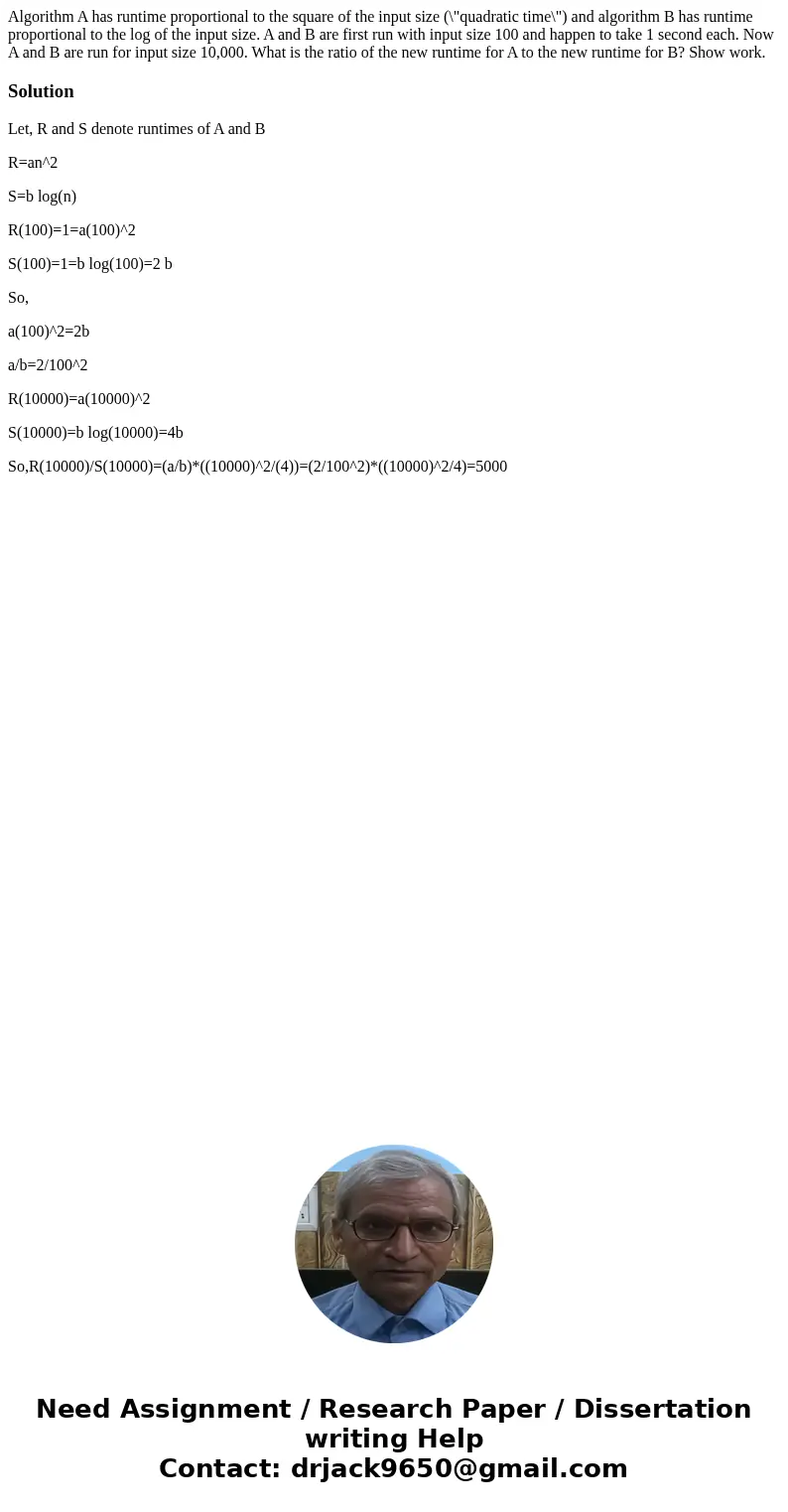Algorithm A has runtime proportional to the square of the in
Algorithm A has runtime proportional to the square of the input size (\"quadratic time\") and algorithm B has runtime proportional to the log of the input size. A and B are first run with input size 100 and happen to take 1 second each. Now A and B are run for input size 10,000. What is the ratio of the new runtime for A to the new runtime for B? Show work. 
Solution
Let, R and S denote runtimes of A and B
R=an^2
S=b log(n)
R(100)=1=a(100)^2
S(100)=1=b log(100)=2 b
So,
a(100)^2=2b
a/b=2/100^2
R(10000)=a(10000)^2
S(10000)=b log(10000)=4b
So,R(10000)/S(10000)=(a/b)*((10000)^2/(4))=(2/100^2)*((10000)^2/4)=5000

 Homework Sourse
Homework Sourse